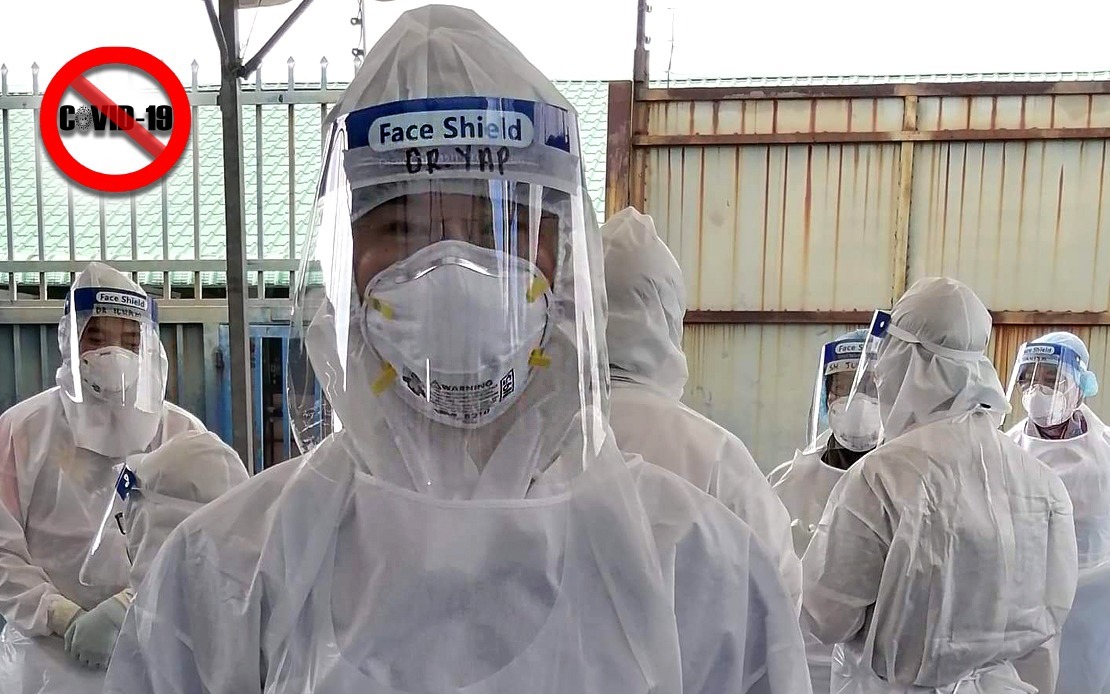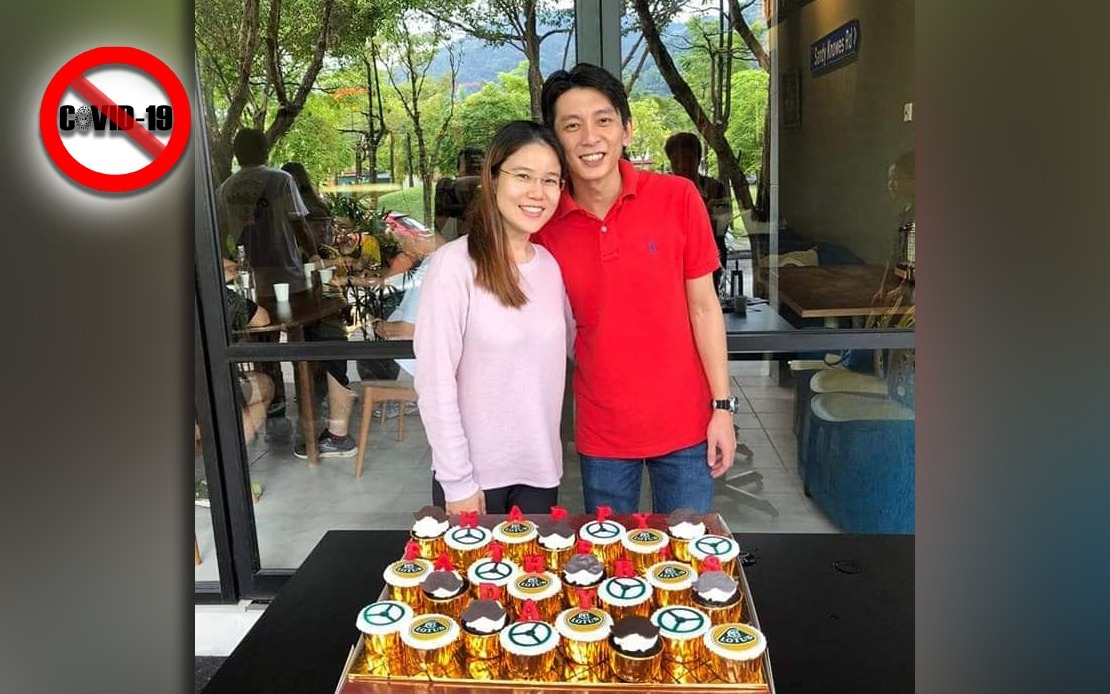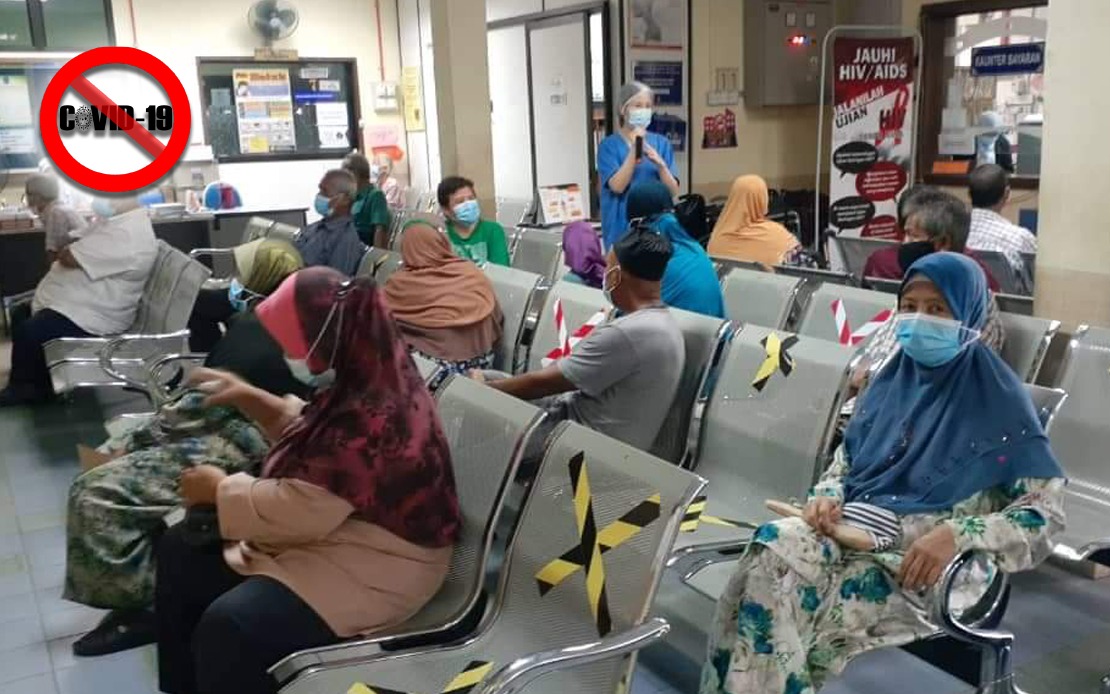Doctor Staves Off COVID-19 Challenges During Pregnancy

By Soon Li Wei
KUALA LUMPUR (Bernama) – In April last year six months after she tied the knot, Dr Yap Choon Fong learned she was pregnant.
On one hand, she was delighted that she was going to be a mother but, on the other, she was full of trepidation as she had just been transferred to the COVID-19 unit at the government health clinic in Bukit Mertajam, Penang, where she worked.
The 30-year-old medical officer’s fears were not unfounded as her job required her to take samples from persons under investigation (PUI) for COVID-19 testing purposes either at the clinic itself or at areas placed under Enhanced Movement Control Order (EMCO).
pic-2
“My family and friends were also concerned about my risk of exposure to the virus. In fact, they advised me to apply for a transfer to another unit but I refused because we were experiencing a shortage of staff at the clinic.

Dr Yap with her husband Dr Jeremy Lam. -- Photo courtesy of Dr Yap Choon Fong
“I was aware that as a frontliner, I shouldn’t be selfish. I then set aside my fears and continued to serve… I strived to fight the COVID-19 pandemic (with my colleagues),” she told Bernama.
Dr Yap remained at the COVID-19 unit until she was 24 weeks pregnant, after which she was placed on duty at the same health facility’s regular daily clinic, fever clinic and also the COVID-19 unit on a rotational basis.
ANXIETY POST-DELIVERY
pic-5
Like all other healthcare workers, Dr Yap donned personal protective equipment and observed all the necessary standard operating procedures while at work.
While her pregnancy was uneventful, save for the risk of exposure to the coronavirus, little did the young doctor realise the “storm” that awaited her after she gave birth to a healthy baby boy at a private hospital in Penang on Oct 29 last year.
“Three days after my delivery, I received a call from the hospital saying that the anaesthetist who gave me the epidural (for pain relief during childbirth) has been tested positive for COVID-19. Of course, I was petrified when I heard this,” she said.
Dr Yap, who was then learning to breastfeed her new-born infant, was forced to undergo two-week quarantine during which she had to take care of her baby all by herself.
pic-4
“My husband and family members were very supportive and would give me moral support through video calls,” she said.
Fortunately, Dr Yap tested negative at the end of the quarantine period but the experience of going through the screening process made her understand better “how the PUI feel when they get themselves tested for COVID-19”.
GOOD TEAMWORK
pic-6

-- Photo courtesy of Dr Yap Choon Fong
Sharing her experience during the earlier stages of her pregnancy when she was involved in carrying out COVID-19 screenings in EMCO areas, Dr Yap, who is currently still on maternity leave, said among the places her team visited were the Immigration holding depot in Juru, Penang International Airport, prisons and the affected housing areas.
“Each day, we would be responsible for taking about 200 samples at each station from PUI comprising illegal immigrants, residents from EMCO areas and tourists, as well as Malaysian citizens arriving at the airport,” she said, adding that her pregnancy was not an excuse for her to shirk her duties as a medical doctor.
pic-7
“Being frontliners, we regard ourselves as close contacts as daily we are exposed to people who may be carrying the COVID-19 virus but our job requires us to serve the community and that’s what I did.”
She added that good teamwork and the positive attitude and support of fellow healthcare staff helped to alleviate her stress and anxiety levels whilst performing her tasks.
Translated by Rema Nambiar
BERNAMA
HealthEdge
EXCLUSIVE

Pet Vaccination, Public Awareness And Surveillance Key Towards Rabies-free Southeast Asia - Experts
KUCHING, Dec 11 (Bernama) -- The goal of making Southeast Asia free from human rabies can be achieved through a total understanding of the disease, how it can be prevented and responsible pet ownership among communities, say experts.
read more ››IN FOCUS

TAVI KAEDAH BAIK PULIH INJAP JANTUNG TANPA PEMBEDAHAN



